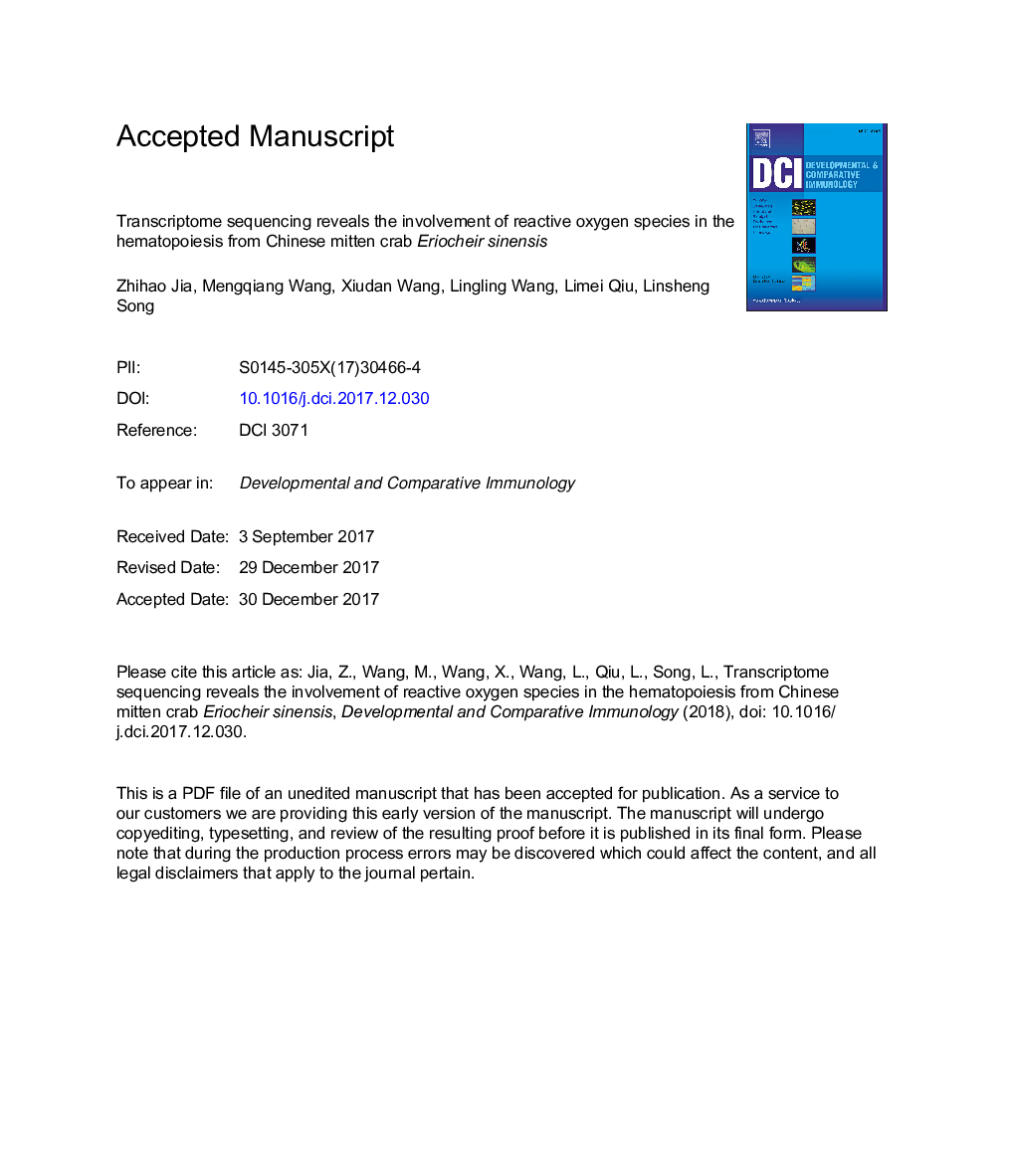| Article ID | Journal | Published Year | Pages | File Type |
|---|---|---|---|---|
| 8497792 | Developmental & Comparative Immunology | 2018 | 38 Pages |
Abstract
Reactive oxygen species (ROS) produced in vivo during various electron transfer reactions are generally kept at a certain level since they are harmful to cells. However, it can sensitize hematopoietic progenitors to differentiation, and plays a signaling role in the regulation of hematopoietic cell fate. In the present study, the transcriptomes of crab HPT and hemocytes were sequenced using the Ion Torrent Proton sequencing platform. A total of 51,229,690 single end reads were obtained from six single-end libraries, which were assembled into 31346 unireads as reference. After mapping and transcript assembling, 362 differently expressed genes were identified and 301 of them were deemed to be more abundant in HPT. GO annotation revealed that they were mostly implicated in DNA, RNA and protein synthesis, cell division, mitochondria activities and energy metabolism. The expression level of mitochondrial complexes I (mitochondrial NADH-ubiquinone oxidoreductase) which was the main natural producers of mitochondrial ROS was found to be 8.6-fold (pâ¯<â¯0.01) higher in HPT than that in hemocytes. In hemocytes, the proteinase genes associated with proPO activation from the 61 up-regulated genes in hemocytes were the main up-regulated genes which might be the potential markers for mature hemocytes. ROS level in HPT cells was relatively higher which was confirmed with the high expression level of mitochondria related genes identified by transcriptome sequencing. After the ROS level was depressed by N-acetyl-l-cysteine (NAC), the production of hemocytes from HPT was inhibited, and the recovery of the total hemocytes counts was delayed. These results collectively indicated that the genes in redox system were more active in HPT, and ROS could function as an important modulator in the hematopoiesis of crab and promote the production of hemocytes from HPT.
Keywords
Related Topics
Life Sciences
Biochemistry, Genetics and Molecular Biology
Developmental Biology
Authors
Zhihao Jia, Mengqiang Wang, Xiudan Wang, Lingling Wang, Limei Qiu, Linsheng Song,
